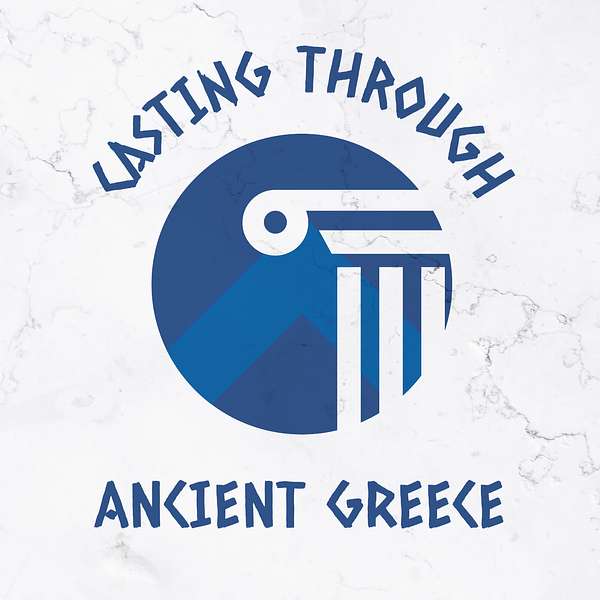
Casting Through Ancient Greece
Casting Through Ancient Greece
76: The Plague of Athens
In the second year of the Peloponnesian War, the stage was set for a continuation of the struggle between Sparta and Athens. Archidamus, the Spartan commander, spearheaded an invasion of Attica with renewed fervour, while Athens harnessed its maritime might to direct a potent fleet towards a more expansive target on the Peloponnesian shores. Yet, amidst the echoes of warfare, an unforeseen and insidious adversary emerged – the plague.
Originating from the Mediterranean's depths, the plague infiltrated Athens, exploiting its cosmopolitan trade networks. The city's bustling trade connections became both a source of prosperity and a conduit for disaster. However, the plague's devastation was exacerbated by the city's burgeoning population, driven to unprecedented numbers by the demands of the war. This surging populace led to congested streets and squalid living conditions, creating an ideal breeding ground.
The toll was profound and unrelenting. Families were shattered, lives extinguished, and a pall of despair enveloped the Athenian skyline. In an era accustomed to tales of valour and intellectual brilliance, this unseen assailant showcased the fragility of human existence. It was a stern reminder of the limits of human resilience against the inexorable forces of nature.
Within this cauldron of conflict and contagion, the second year of the war transcended its militaristic boundaries. It was a juncture where the will of cities clashed with nature's indiscriminate wrath. The plague, an unexpected interloper, reshaped Athens' narrative. As the war's tempest raged on, Athens wrestled not just with rival armies, but also with an unrelenting force that rose above the clashing of swords – an enduring testament to the intricate interplay between human agency and the capriciousness of fate.
💬 Stay Connected with Casting Through Ancient Greece
Follow us for updates, discussions, and more ancient Greek content:
🌐 Website
📸 Instagram
🐦 Twitter
📘 Facebook
🎙️ Love the show? Don’t forget to subscribe, leave a review, and share it with fellow history enthusiasts. Your support helps keep the stories of ancient Greece alive!